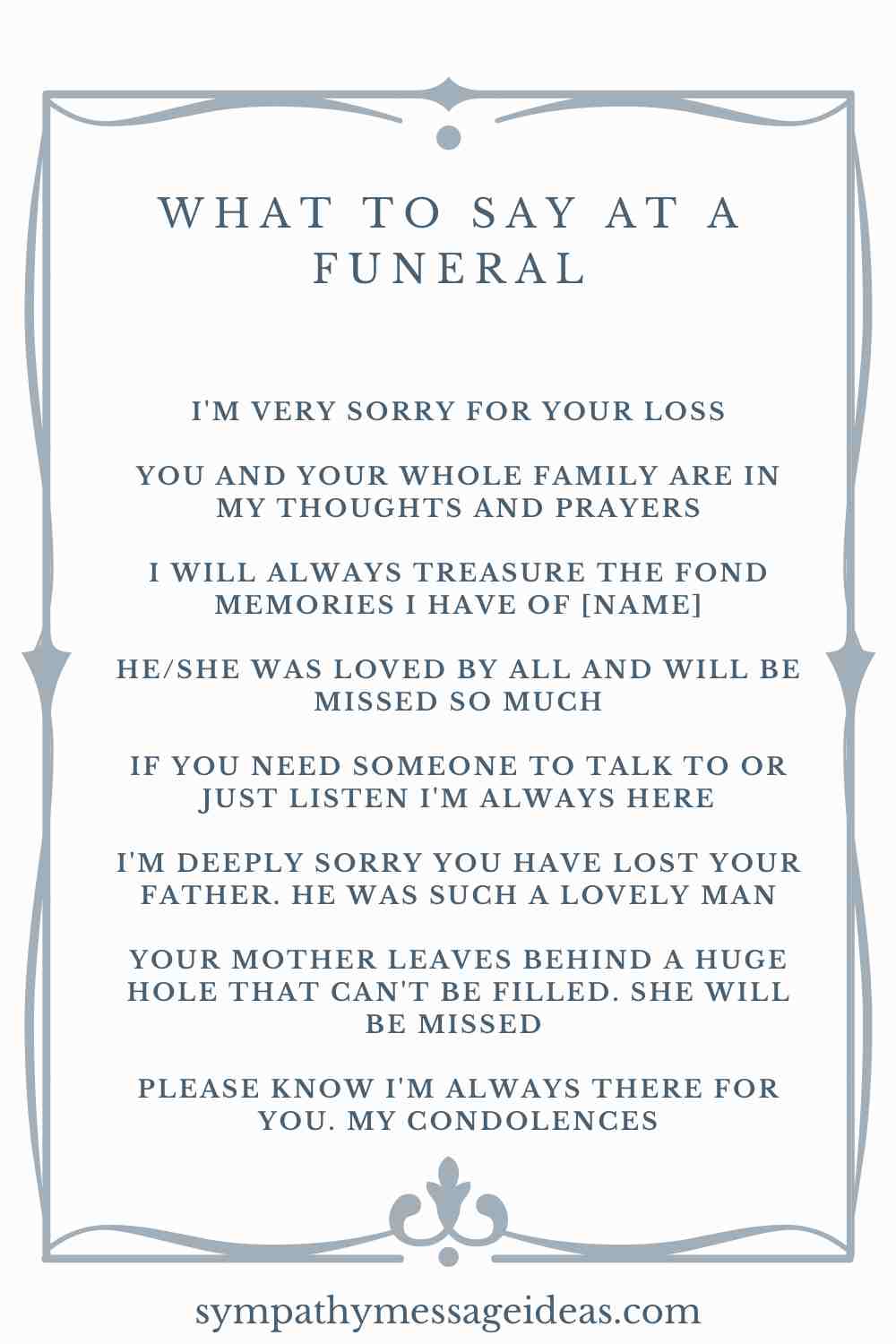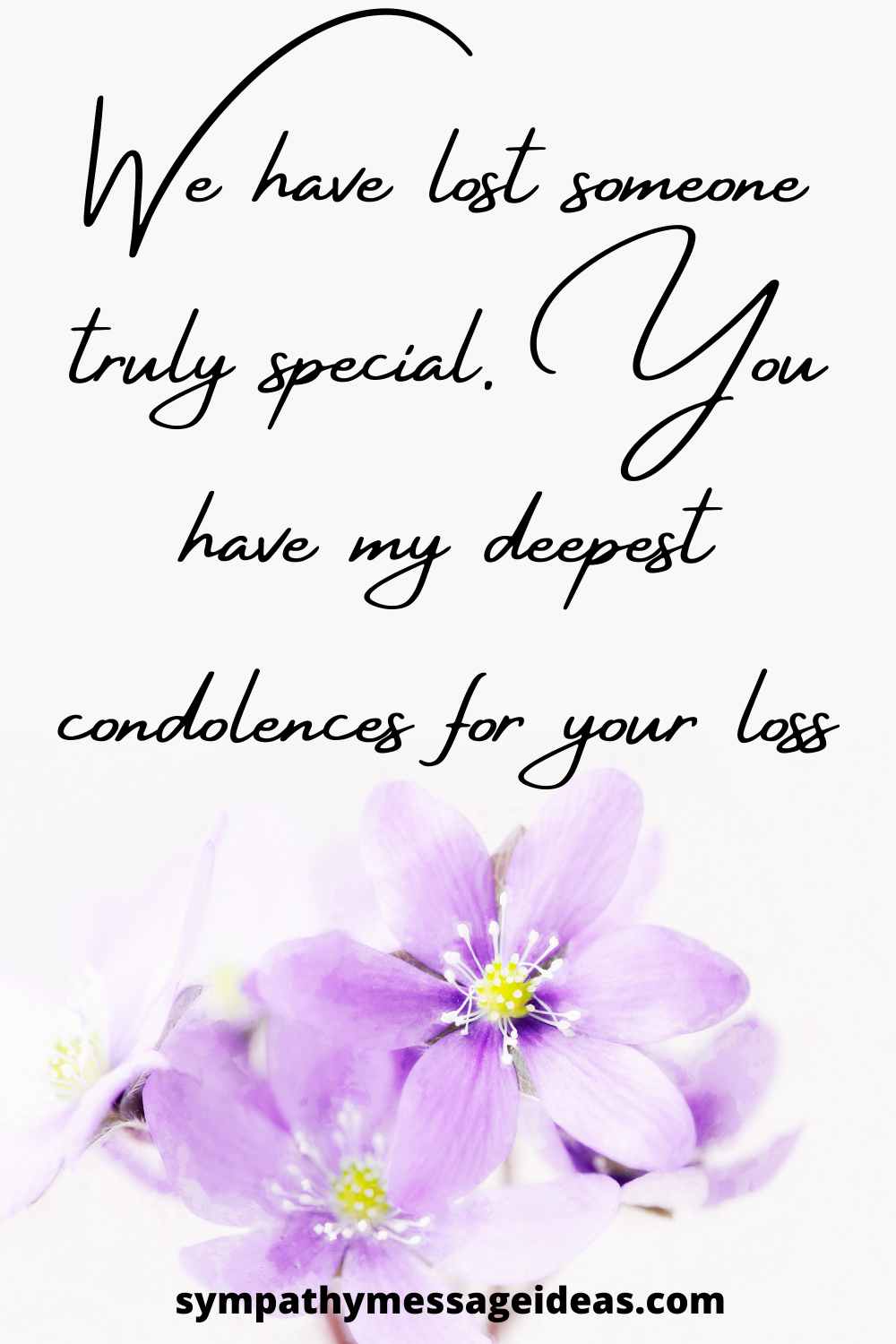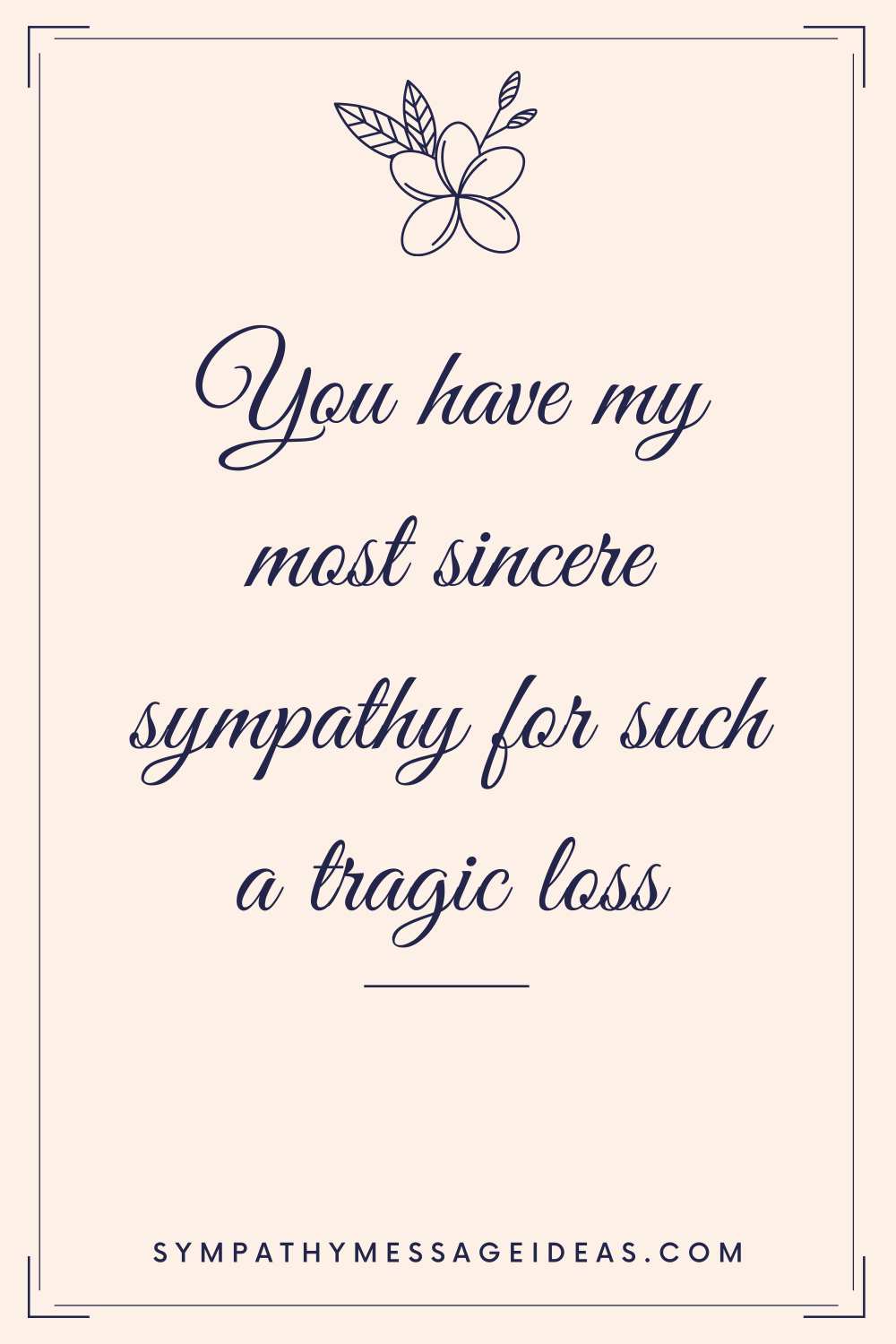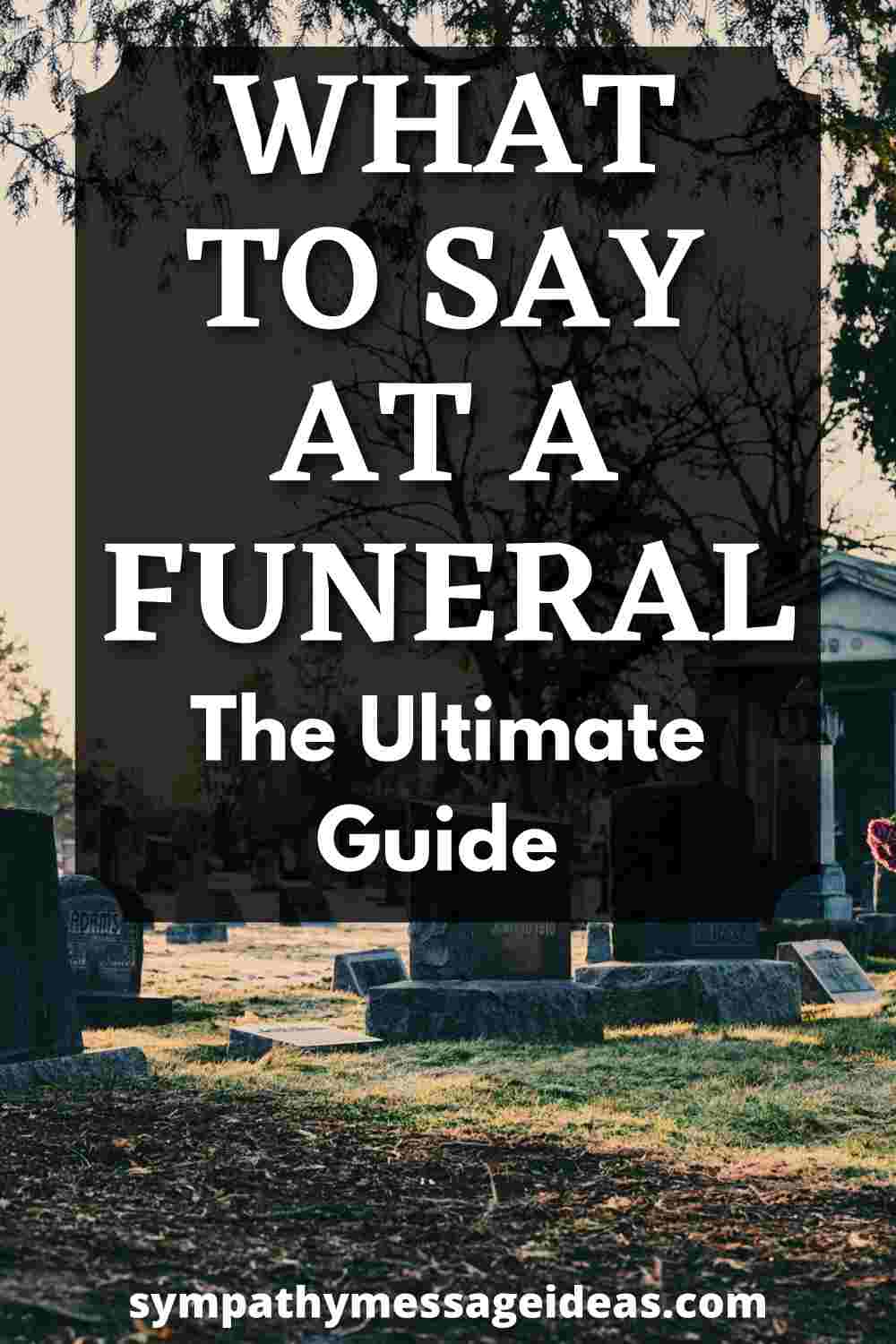When you attend a funeral it can be incredibly hard to know what to say to the grieving family. You want to avoid causing any extra upset or sadness, as well as avoiding anything that might offend them.
Trying to navigate what is and isn’t acceptable might feel a bit like going through a minefield. In turn that can mean that what you do say doesn’t fully express how you feel. Or you play it safe to guarantee you don’t cause any offence.
But if you prepare beforehand, and take the time to find out what is acceptable to say to those grieving their loss at a service or memorial then you can be sure what you say reflects how you truly feel. You can also offer some comfort with your kind words and understanding.
That’s why we’ve put together this guide to help with what to say at a funeral. Whilst making the effort and saying something rather than nothing is the most important thing, and speaking from the heart will always be appreciated, the tips and ideas found here will help make sure you can say exactly what you want without fear of offending or upsetting the those dealing with a loss.
What to Say Before a Funeral
The most important thing to do before a funeral is to acknowledge the loss of whoever it is and reach out to the family or friends that are grieving. That may feel awkward as it can feel like you’re reminding them of their loss. But they won’t see it that way and will be glad to hear from those wanting to offer their condolences.
How you decide to get in touch is up to you. A sympathy card with a few comforting words is always a good option but a phone call is just as good.
Depending on how close you are then you might prefer to visit those mourning in person. Be sure to check with them first rather than turning up announced though.
Grief often leaves people wanting to be left alone and not feeling ready to deal with even the smallest social situation. So it’s essential you ask before visiting to avoid any further upset on there part and general awkwardness.
When reaching out, be that in person or via a card/phone call, be sure to use the name of the deceased and talk honestly. It’s understandable if you aren’t sure exactly what to say in a situation like this, so it’s best to say that. They will understand that it’s tricky for you to find the right words and will appreciate the honesty, and the fact that you’ve made the effort.
What to Say at the Funeral
When attending the funeral you will be expected to talk to the family of the deceased. If you didn’t know him/her that well or weren’t that close then you may only have to say a few words to the family.
If you were close then you may find yourself standing with the family and engaging for a longer period of time. Your support and just the act of being there and in attendance of the funeral service or memorial is going to be comforting to those grieving their loss. The actual words you say can sometimes pale in significance to the action of being beside someone or giving them a hug.
Regardless of how long or short your time with the deceased’s family is you may find yourself feeling more comfortable about what you’re going to say if you have planned it somewhat beforehand. Just go through what it is you’ve chosen to say so you’re familiar with it and don’t make any mistakes.
For some more help try some of examples of what you can say during a funeral:
- I’m very sorry for your loss
- You and your whole family are in my thoughts and prayers
- I will always treasure the fond memories I have of [name]
- He/she was loved by all and will be missed so much
- If you need someone to talk to or just listen I’m always here
- I’m deeply sorry you have lost your father. He was such a lovely man
- Your mother leaves behind a huge hole that can’t be filled. She will be missed
- Please know I’m always there for you. My condolences
When to Say it
As well as being unsure of what to say, many people aren’t sure when you should speak to the deceased’s family.
It’s probably best to wait until after the funeral rather than during it to approach anyone to offer your condolences. The visitation or reception is also a good time to reach out to the bereaved with a few words of sympathy.
To the Family or Friends
If you are a close friend of the family of the deceased then they will probably be expecting to talk to you at some during it after the funeral.
Knowing them well can put some added pressure on you. You might feel like you have to come up with something really profound, or comforting, or remember a story that encapsulates the deceased in the most positive way.
If you can do any of those then great. But realistically the family aren’t going to be expecting nor necessarily wanting that.
A simple few words that express your sadness and maybe hug is all that’s needed. Be genuine and speak from the heart, and the family will appreciate it more than you know.
A few ideas of what you could say:
- You have my deepest condolences for your loss
- We have lost someone truly survival with [name]’s passing
- I shall never forget [name] and just how much laughter and kindness they brought to us all
- He/she will be so sorely missed by everyone
- You have my most sincere sympathy for such a tragic loss
- I know my words can offer little in the way of comfort but please know you are in my thoughts
- It is with such sadness we say goodbye to [name]. I shall never forget them
- The memories I have of [name] will remain with and remind me of how amazing they were
To Colleagues or Acquaintances
If you didn’t know the deceased or their family very well then you will probably still want to say something. Remember to introduce yourself first and make it clear how you knew the deceased.
As you aren’t close then it’s probably a good idea to keep whatever you say brief and move on. The bereaved family will appreciate any kind words but will probably want to spend longer with those they or the deceased the knew well.
What to Say if it’s your Family Member or Loved Ones Funeral
We’ve looked at what to say when you’re talking to the family and friends of the deceased, but what do you say if you’re the family or friend and receiving the condolences. If your loved one has passed away how do you react or reply to those words of sympathy?
Much like when planning what to say to the bereaved you can practice how you will respond. Think about a few phrases you can easily go to when dealing with lots of condolences and people offering their sympathy.
- I was very close to [name] and will miss them dearly
- The whole family are going to miss [name]. They were loved by us all
- [name] was one of my best friends, I can’t imagine life without them
- It’s with such sadness we have to say goodbye to [name]
- There will never be anyone like [name]. They were so special
What to Say After a Funeral
The funeral is the place where we say goodbye, but that doesn’t mean the grief and pain ends there. The family and friends who lost their loved one will continue to deal with the grieving process from some time afterwards.
So if you can you should try to check in with them in the following days and weeks. You don’t have to do too much but asking how they are coping and offering any support you can will be
That might be in the form of meeting them for a coffee or lunch, helping with some small chores or jobs they have – anything that shows you care and are there for them even after the funeral has been and gone.
Whatever it is or you choose to do try to do something. Keep in contact and be there for whoever it is. Continued support after losing a loved one is really important. It helps those grieving to feel less alone and able to get through the difficulties of their loss.
If you aren’t able to be there on the day see our guide on what to say when you can’t attend a funeral.
What NOT to say
Whilst it’s always good to reach out to those suffering and offer your support and condolences after a loss, there are some things you should avoid saying:
- ‘I know how you feel’ – whilst you may have experienced a similar loss that doesn’t mean you understand their situation. Everyone grieves differently and by making yourself central it puts the attention on you and away from them. Which when it’s a funeral for their passed loved one is definitely not a good idea.
- ‘He/she lived a full life’ – this may be technically true but it isn’t appropriate to say at a funeral. No one ever feels like a loved one is ready to go and even if they’ve had the most incredible life, for those closest to them it won’t be enough.
- ‘You’ll meet someone else’ – if it’s a husband or wife that has lost their partner then this is deeply inappropriate. I tune they may well want to move on and meet someone new but that will be a long time in the future and certainly not something they will be even considering during the funeral.
- ‘In time you will get over this’ – while this may also be true it isn’t right to say at a funeral. Let people grieve and take as long as they need to get through a loss rather than pushing them towards acceptance.
- ‘They’re in a better place’ – no they aren’t. The place their family and friends would want them is by their side and with them.
For more ideas see our guide on what NOT to say to someone grieving.
Anything that might seem judgemental, joking or lacking respect should be avoided. If you aren’t sure what to say then just stick with something tried and tested – “I’m sorry for your loss”. Try to imagine yourself in their shoes and what you would like to hear from people. But above be kind and thoughtful.
Conclusion
Knowing what to say at a funeral is challenging for most of us. So if you are struggling or feeling anxious then you aren’t alone.
The main thing to remember is that what you say doesn’t have to be particularly special. Don’t think you need to come up with something unique or profound. A few words or sentences that shows you sorry you are for the family or loved ones loss is perfectly acceptable, and all that’s expected.
Just by being at the funeral and making the effort to offer your condolences will be warmly received and enough to let the family know you care.





